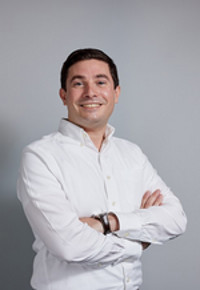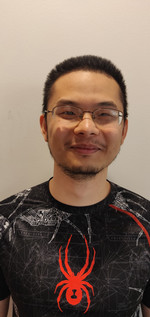
Wednesday, November 20th @ 10:00am in KC 149 or Join us on Zoom!
Abstract: In the past years, machine learning applications in the field of quantum physics
and quantum technologies have surged along various directions. For instance, Machine
Learning (ML) has been used for quantum state tomography, quantum state representation,
to approximate quantum dynamics, and to design quantum optics experiments [1].
In this presentation, we focus on machine learning methods for the optimal control
and optimal design of quantum devices in the field of quantum thermodynamics.
First, we discuss how Reinforcement Learning provides a flexible framework for a variety
of optimal control problems in non-equilibrium quantum thermodynamics. After reviewing
the general framework, we showcase its flexibility optimizing the power-efficiency
tradeoff of a quantum thermal machine [2,3], including measurements and feedback [4],
and the charging power and ergotropy of a quantum battery that exhibits a collective
speedup of the charging power [5]. In all cases, novel control strategies are discovered
that outperform previous proposals made in literature.
We then discuss how gradient-based optimization methods, commonly employed in ML,
can lead to the optimal design of quantum devices for quantum thermodynamics, such
as the discovery of optimal thermometers using spin networks [6].
REFERENCES:
[1] M. Krenn, J. Landgraf, T. Foesel, and F. Marquardt, Phys. Rev. A 107, 010101 (2023).
[2] P.A. Erdman and F. Noé, NPJ Quantum Inf. 8, 1 (2022).
[3] P.A. Erdman and F. Noé, PNAS Nexus 2, pgad248 (2023).
[4] P.A. Erdman, R. Czupryniak, B. Bhandari, A.N. Jordan, F. Noé, J. Eisert, and G.
Guarnieri, arXiv:2408.15328 (2024).
[5] P.A. Erdman, G. M. Andolina, V. Giovannetti, and F. Noé, arXiv:2212.12397, accepted
in Phys. Rev. Lett. (2024).
[6] P. Abiuso, P.A. Erdman, M. Ronen, F. Noé, G. Haack, and M. Perarnau-Llobet, Quantum
Sci. Technol. 9 035008 (2024).









